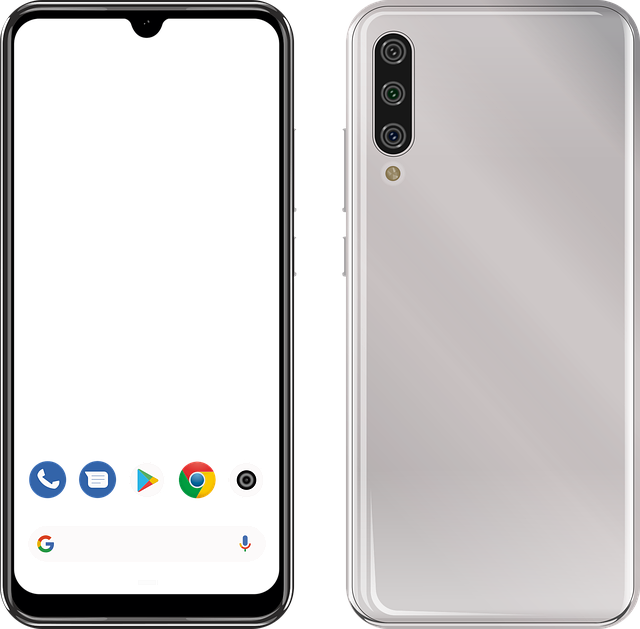North Carolina's spam call laws target caller ID spoofing, with fines for violations. Spammers pose as law firms to trick residents into giving sensitive info. Specialized Spam call law firms NC investigate and take legal action against spoofers under TCPA & state laws. Consumers should be cautious of urgent calls from purported law firms and report suspicious activity.
In North Carolina, caller ID spoofing has emerged as a growing concern, with spammers exploiting vulnerabilities in the state’s anti-spam laws. This article delves into the intricacies of caller ID spoofing, exploring its tactics and impact on consumers. We navigate North Carolina’s legal landscape to understand how spammers operate and examine the legal recourse available for spoofed calls. Key topics include the state’s anti-spam legislation, consumer protection strategies, and the role of spam call law firms in NC.
Caller ID Spoofing: A Growing Concern in NC
In North Carolina, like many other states, caller ID spoofing has emerged as a growing concern. This deceptive practice involves manipulating phone numbers displayed on caller IDs to mislead recipients about the true source of a call. While it may seem like a harmless prank, spoofing has significant implications, especially for businesses and law firms operating in NC. With advancements in technology, scammers are able to mask their identities, making it easier to target unsuspecting individuals or organizations with malicious intent.
The increasing prevalence of spoofed calls has prompted the need for stricter regulations. North Carolina’s spam call laws aim to protect residents from these deceptive practices. Law firms across the state must remain vigilant and educate their clients on the potential risks associated with unknown or suspicious callers. By staying informed and implementing robust communication strategies, these institutions can mitigate the negative impact of caller ID spoofing.
North Carolina's Anti-Spam Laws and Their Impact
North Carolina has implemented strict anti-spam laws to protect its residents from unwanted and fraudulent calls, also known as spam calls. These laws are designed to give consumers more control over their phone lines and to combat the growing issue of caller ID spoofing. The state’s spam call law firms play a crucial role in enforcing these regulations.
Under North Carolina General Statute § 75-64.1, telemarketers and businesses must obtain explicit consent from residents before making automated or prerecorded calls. This includes calls with manipulated or falsified caller ID information. Violations of these laws can result in significant fines, emphasizing the importance of adherence to spam call regulations.
How Spammers Use Spoofing Tactics
Spammers often employ caller ID spoofing as a tactic to deceive and mislead North Carolina residents. By manipulating technology, they can display fake numbers on call recipients’ screens, making it seem like the calls are coming from trusted sources. This practice is particularly prevalent among spam call law firms targeting consumers with false threats or misleading offers. They may pose as official entities, such as government agencies or well-known companies, to trick individuals into providing sensitive information or agreeing to unlawful terms.
These malicious actors use sophisticated methods to mask their true origins, making it challenging for recipients to identify and block these calls. Spoofing allows spammers to bypass call blocking measures, ensuring their messages reach the intended audience. As a result, North Carolina residents are advised to remain vigilant and cautious when answering unknown calls, especially those claiming to be from law firms or offering urgent matters.
Protecting Consumers: Legal Recourse for Spoofed Calls
In North Carolina, consumer protection laws are in place to combat caller ID spoofing and protect residents from deceptive practices. When individuals or businesses make spoofed calls with the intent to defraud, harass, or mislead recipients, they violate state regulations. If you’ve been a victim of such calls, it’s essential to understand your rights and available legal recourse.
Spam call law firms in NC specialize in assisting consumers affected by these fraudulent activities. They can help investigate and document the spoofed calls, providing evidence for potential legal actions against perpetrators. These actions may include filing complaints with regulatory bodies, seeking damages, or requesting court orders to cease and desist such practices. By utilizing the legal system, consumers can protect themselves and contribute to a safer communication environment in North Carolina.
Navigating NC's Legal Landscape Against Call Spoofing
In North Carolina, combating caller ID spoofing is a complex task due to evolving technologies and varying legal landscapes. The state has implemented measures to protect residents from spam calls and identity theft, including laws that make it illegal for callers to misrepresent their identity or location. The North Carolina Spam Call Law firms play a crucial role in upholding these regulations by helping individuals file complaints against suspected spoofers.
Navigating the legal aspects of call spoofing requires understanding specific provisions within the Telephone Consumer Protection Act (TCPA). NC’s Attorney General’s Office offers guidance and resources to assist residents in recognizing and reporting fraudulent calls. By staying informed about the latest legal developments, consumers can better protect themselves and contribute to a safer digital environment, while spam call law firms continue their efforts to enforce these laws.






